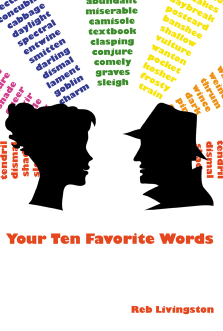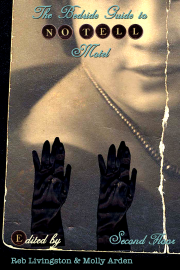Poets and Their Own Greatness
It's not that I don't believe a poet should be ambitious for her poems, I most certainly do. When I write, I strive for a divine connection between the poem and readers. When I read, I hope for a divine connection between myself (as reader) and the poem. In many cases, there's a level of disappointment. I can't tell you how many times I read poems recommended by friends I admire and respect that never come close for me. Or I recommend poems that I consider divine to those who feel/think differently.
I'm using "divine" because I don't like the word "great" in this context. It's been sullied by what I consider a perversion, an immature fixation, an authoritative, negative patriarchal perspective (which is by no means limited or inclusive to all men, so many women share it too). It's a static, one-sided fantasy. It discourages development, ignores wholeness (which always has limitations and inferiorities). When one puts her focus on her own greatness, which basically comes down to how others perceive and consider her poems, she is betraying her poems. Her priority shifts and is no longer on making the poems what they're supposed to be. How can they? She's too self-conscious of others and attempting to manipulate forces out of her control.
Once upon a time there was a very great poet. He won many great awards and was invited to speak at many great events. For the most part, his work was declared great and he had many readers and sold many books published by great presses. His greatness drove him to spend a great deal of time tormenting and attacking non-great poets who disagreed with him. His greatness led him to spend a great deal of time discouraging and bullying younger poets, young poets few ever heard of and nobody ever called great. He spent a great deal of time asserting his own greatness to all the less-than-greats. He was a very great, but miserable man. Some people said he felt constantly threatened and needed to protect his greatness at all costs. Some people said he was very sick and should be pitied. Some said he was just plain mean. Some said being great gave him every right. Some said greatness required a certain amount of hatefulness.
Who wants to be great?
Not me.
-----
p.s. I wrote this before I realized Amy King tagged me, but seems like we're on a similar wave length.






11 Comments:
I like the divine. I feel what you're saying. I hope the poems are great, regardless of the poets. Separate entities and all.
could you explain "it discourages development, ignores wholeness"? I think i get what you;re saying.
Greatness is an illusion of a type of perfection or reaching (and maintaining) a pinnacle. What is perfection or this pinnacle is a narrow idea that leave no room for deviation or contradiction. For something to be great, not only does it have to be "extremely good" it also has to confirm an already existing notion and deny all else. We've seen the blanket requirements, "a great poem must: be universal or respond to the human condition or be about (insert subject matter) . . ."
It's like telling my son: "all great little boys grow up to become doctors and visit their mommies every Sunday." It puts a rigid parameter on evaluating him, does not address what he needs or is supposed to be and very thinly disguises my own self-serving agenda: confirming my excellent parenting to others and maintaining my own relevance in his life. It's not about him at all, it's about my own deformed ideas being forced on and very likely internalized by him.
Do I think children are like poems? In some ways, yes.
Amy tagged me as well and I've left my response over there. Needless to say, I think Orr's piece is introspective masturbation disguised as literary critique.
I don't use the word "great" when talking about poets & poems either. It's mostly obnoxious because of its arrogance and really doesn't tell you much about the poem. I mean, will I like it?
I hear what you're saying, I agree with much of it... I hold with the traditional religious idea that the truly great are the humble, those who serve others & ask nothing in return....
Nevertheless.... there is something "great" in great poetry. I think it would be a shame to toss out this idea, simply because it makes everyone who's not great, or a maker of great poetry, feel small. There is such a thing as envy & resentment, too.
Greatness has something to do with "magnitude" (& I'm not just saying "size is everything"). Some of the art works we encounter BOWL US OVER with a magnitude of force, a power. This, I think, is the origin of the notion. Great art is not only beautiful - it is in touch with the SUBLIME (as in, powerful, almost frightening but dazzling forces of nature).
Reb: I love your take on how "greatness" (and/or our obsession with it) just leads to miserableness.
Right on!
So, to be great is to be . . . a bastard? What a relief: I'll stop it right now with trying to aspire to greatness. Actually, I've found that forgetting about fame and recognition is the best way to write more, and sometimes even write poems that come close to divine . . . even if no one else necessarily agrees they're divine. Jorie Graham asked me: "Who are you writing for? I write for myself . . .and God." With God as one's audience, how can you be anything else but divine?
So, to be great is to be . . . a bastard? What a relief: I'll stop it right now with trying to aspire to greatness. Actually, I've found that forgetting about fame and recognition is the best way to write more, and sometimes even write poems that come close to divine . . . even if no one else necessarily agrees they're divine. Jorie Graham asked me: "Who are you writing for? I write for myself . . .and God." With God as one's audience, how can you be anything else but divine?
I blogged about it too. I was so tempting!
I have recently learned that I may be one of the most unhip poets of our time in my bid to actually be useful.
How tawdry.
I stink.
Post a Comment
<< Home